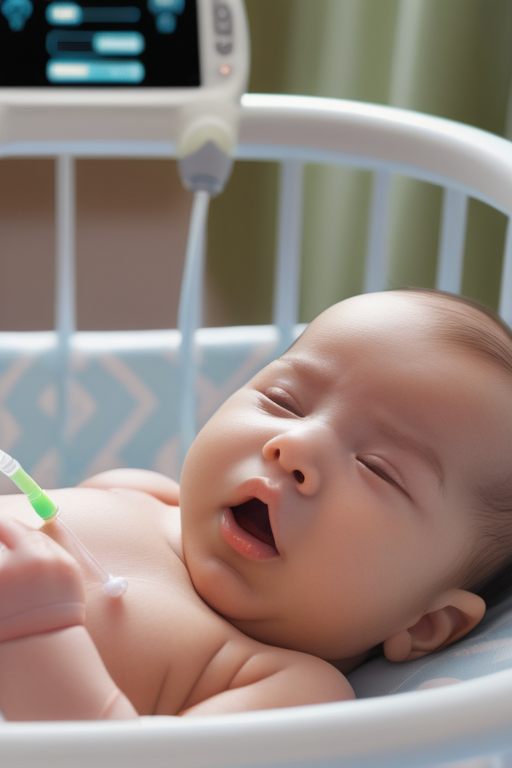Can babies have sleep apnea? So, what is sleep apnea? Why do babies have sleep apnea? Why do babies snore when they sleep or whatcauses babies to wheeze during sleep ? Yes; our topic is sleep apnea in babies…
What is sleep apnea in infants?
Sleep apnea is common in babies. However, many parents do not recognize or care about this condition. However, when the necessary treatment is not applied, it can negatively affect the development of the baby by disrupting the quality of sleep. Now, let’s get to know sleep apnea in infants…
What is Sleep Apnea?
It is a condition that impairs sleep quality and prevents the body from resting during sleep. Because apnea stops breathing during sleep. We wake up when we cannot breathe. This is a major obstacle to a full and quality sleep. However, there is more than one type of sleep apnea. So, what are the types of sleep apnea?
What are the Types of Sleep Apnea?
We basically examine sleep apnea, which reduces sleep quality and threatens human health, under three different headings.
- Obstructive sleep apnea is caused by a blockage in the upper airway during sleep.
- Central sleep apnea is caused by a malfunction of the breathing centers in the brain, the brain cannot transmit the command to the muscles to breathe while sleeping.
- Compound sleep apnea is a mixture of obstructive and central sleep apnea.
Is Sleep Apnea Seen in Babies?
Yes, sleep apnea occurs in babies, even newborn babies. It also happens that the baby cannot breathe during sleep. In such a case, you should immediately go to the nearest health institution. The type of sleep apnea seen in infants is usually central sleep apnea and usually resolves over time. Children older than one year usually have obstructive sleep apnea.
What Causes Sleep Apnea in Infants?
Sleep apnea in infants may have more than one cause. Some of these are as follows:
- Underdeveloped Central Nervous System
Newborns and some babies may not yet have a fully developed central nervous system. In this case, they may forget to breathe during sleep.
- Tonsils – Adenoid
The most common cause of sleep apnea in infants is enlarged tonsils and adenoids. In infants, surgery is generally not preferred and the pediatrician is accompanied by an ENT specialist to offer a solution.
- Allergy
In infants and early childhood, allergies and consequent breathing problems are common. If the cause of the allergy is found out and the necessary treatment is provided, sleep quality improves.
- Anatomical Disorders
Sleep apnea can also occur if the baby has an anatomical defect in the mouth, nose and jaw. Such congenital defects can make breathing difficult, especially breathing during sleep.
- Sleep Apnea of Prematurity
Sleep apnea is common in babies born prematurely. Because the central nervous system is not yet developed, the baby forgets to breathe during sleep.
- Other Causes
Other causes include respiratory diseases, reflux, imbalances in calcium and glucose levels in body chemistry, problems in the heart and blood vessels and overweight.
- Down Syndrome
Babies with Down syndrome are more likely to have sleep apnea because of the structure of their upper airways. Studies show that more than half of babies with Down syndrome have obstructive sleep apnea.
What Should You Do If Your Baby Snores in His Sleep?
Children and babies snore. Snoring is not only characteristic of adults. However, snoring may indicate sleep apnea. If a baby snores, you should see a pediatrician. Monitor this and report it in detail when you see the pediatrician. You can even take a video of him sleeping. Do not attribute the snoring to tiredness. The pediatrician will refer you to an ENT specialist if necessary. As mentioned above, if you have adenoids or tonsils, this may be the cause of sleep apnea. Therefore, you should first see an otorhinolaryngologist. An examination on topics such as heart rate, brain functions and respiratory status during sleep may also be requested.
What is the Effect of Sleep Apnea on Babies?
Ifthe child stops breathing during sleep, it can cause a decrease in blood oxygen levels. This may prevent the secretion of the growth hormone secreted during sleep. As a result, developmental problems may occur. To summarize; the presence of breathing stops lowers blood oxygen levels. It can interfere with the healthy development of the child.
Is Sleep Apnea the Cause of Snoring in Babies?
Snoring is a symptom. It is very natural to snore during upper respiratory tract infections. However, if there is chronic snoring or noisy breathing, it is absolutely necessary to consult a pediatrician and then an ENT specialist.
Research shows that one in every 100 children in our country has sleep apnea . Although sleep apnea is more common in adults, it is seen equally in boys and girls when it comes to children. The growth rate of adenoid tissue and tonsils according to the size of children increases between the ages of 3-5. Therefore ,wheezing snoring can be seen more between the ages of 3-5. The rate of breathing during sleep is important here. If it is too advanced, it may negatively affect the development of the child.

